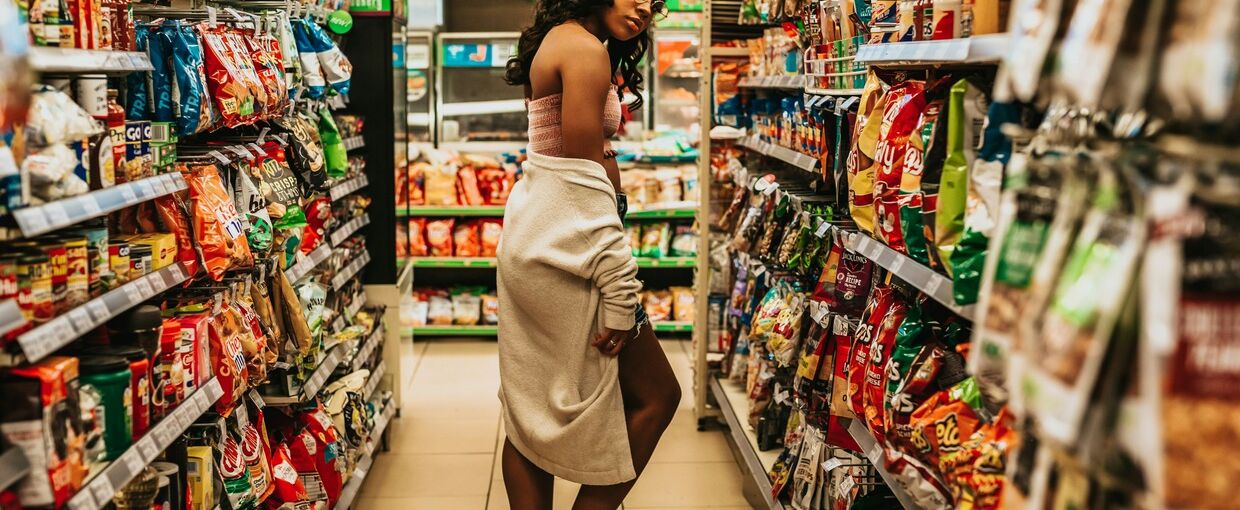Even if your house doesn’t have a huge appetite, food shopping can take up a strangely big chunk of your budget if you’re not careful. No-one wants to spend half their life (or their bank balance) on shopping for food, so here’s a few handy tips to ensure the best use of both your time and your money.
Don’t Shop Hungry
Rule one of food shopping is to never shop on an empty stomach. Food shopping when you’re hungry can lead you to make impulse buys swayed by clever marketing. This can cost you unnecessarily, especially if you’re trying to budget sensibly. It can also lead you to buy more than you need because you feel like you’ll eat it all, even if it’s clearly too much. You also may make less healthy decisions because you’re drawn to purchase junk food for a quick snack rather than more sensible, sustainable meal choices.
Plan Ahead
Going shopping blind just because the fridge is empty can leave you coming home with bags full of items you had no plan on buying. Before you go to the shop or put in your online order, figure out exactly what you need, and what you don’t. Nothing can waste money quite like buying double of something you’ve already got at home or having to go straight back out to the shop as soon as you’ve got home simply because you’ve forgotten something. It’s also generally better to buy your food from larger supermarkets as they are generally cheaper than local convenience stores that although may be closer to home, will likely be more expensive.
Buy in Bulk
Buying larger quantities of food generally saves you money. For instance, it’s usually cheaper to buy 5kg of rice than it is to buy 500g ten times. If you have the space, it’s important to try and buy non perishable items in bulk to save you both money and time. With fresh items, it can be challenging but if you know the item will be used before it goes bad (for instance milk), then it’s better to buy a big bottle than sending someone to the shops daily to buy smaller bottles. Buying in bulk also usually means you have a lot more ingredients/meals ready at home so you can make more food rather than having to spend money ordering takeaways or snacking. Bulk buying also allows you to meal prep, which can save you hundreds every month on lunches and dinners. It also saves huge amounts of time that you may be low on during those busy weeks.
Take Advantage of Deals
Shop around for deals and don’t be stuck to one brand if another is on offer. BOGOF deals or 3 for 2’s can sometimes mean you spend unnecessary money on items you don’t need, but for the most part, you can utilise them sensibly to get better value for money. Some stores will have points cards than allow you to take advantage of deals exclusively at their store. It’s good to capitalise on these as they can reduce your shopping bill greatly, especially if you’re doing the shop for an entire household of people.
Don’t Waste Food
Be sure to use all the food in your fridge and cupboards before you buy more. It can be easy to fill your house with foods after a big shop and then forget about the things you put at the back of the cupboard, letting them pass their sell by dates and end up in the bin. Keep an eye on your best before dates and plan your eating around them to reduce waste and cut back on unnecessary spending.
Shop Around
Try and find shops that offer value rather than just convenience. Just because a store is closer to home, doesn’t mean it’s the best one for you. Try shopping further afield at cheaper shops that match your needs and budget to save yourself money long term. Of course, you don’t want to sit on a bus for an hour just to get to a cheaper shop, but finding one that offers a balance of convenience and budget is key.



